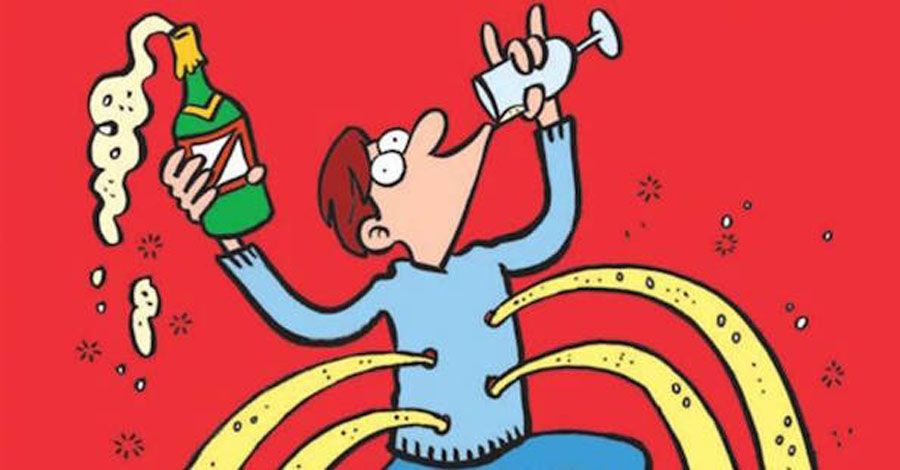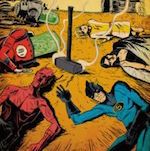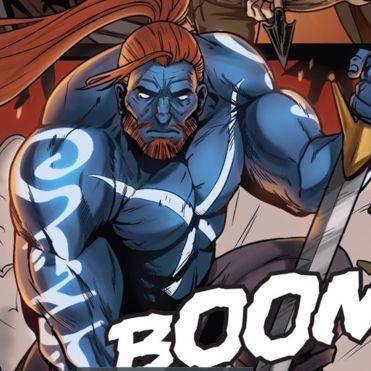Crime | French police are investigating two new death threats to the staff of the French satirical weekly "Charlie Hebdo." The first threat was posted on the magazine's Facebook page and then removed; the second was sent to the editor a few days later. "The messages raise the idea of killing several members of the editorial, again," an anonymous source told the French newspaper Le Parisien. Security is tight at the "Charlie Hebdo" editorial office, which was moved to a secret location after 12 people were killed in an attack in January 2015. [The Local]
Conventions | Rob Salkowitz interviews Comic-Con International chief communication and strategy officer David Glanzer, who has been going to Comic-Con since 1978 and working for them since 1994. Glanzer discusses attendance, the possible saturation of the pop-culture convention market, and what might cause the con to leave San Diego, however reluctantly. And he emphasizes the importance of comics to Comic-Con: "We have a great and unique demographic and are pinged constantly by organizations who want to target that demographic for marketing purposes. But while it may be true that they are a key demo for marketing, we don’t want a participating company to exhibit or present a panel for that reason alone. They should have an organic relationship to comics and popular art. It’s a difficult area to maintain, but it’s one we pride ourselves on at least trying to remain true to our mission." [Forbes]
Editorial Cartoons | Cartoonist Rick Friday has returned to Farm News, where he was a regular cartoonist for 21 years until they fired him after an advertiser complained about one of his cartoons. The incident attracted national attention and resulted in a flood of job offers for Friday, who has been busier than ever. The paper actually offered him his job back shortly after he was fired, but it took a while to negotiate the terms. [Des Moines Register]
Creators | Jeff Lemire discusses his new original superhero comic, "Black Hammer": "[L]ike all the characters in BH, Black Hammer was inspired from a very specific part of comic book history. So he was pulled from the 70’s Blaxploitation super hero archetype, like Luke Cage or Black Lightening. But, like all the other characters, he will be revealed to be something much more than that, a real, fully rounded character that transcended these genre trappings and stereotypes." [Outright Geekery]
Creators | Brian K. Vaughan discusses his work life, equity for artists, and "Saga" as a gateway drug for new comics readers. [Vulture]
Creators | Ronald Wimberly makes the argument that creators should not do pages on spec for the big publishers -- or even smaller publishers, like BOOM! Studios: "The hours that an artist spends making a sample are bankable hours; it’s work. By not paying for that sample art, these corporations are offsetting the cost of their R&D on labor. Artists shouldn’t have to shoulder the burden of a corporation’s R&D." [D3.1415926]
Comics | The Scottish publisher Diamondsteel Comics unveiled the newest title in their "Saltire" superhero series at the Glasgow Comic Con recently; the world of this comic includes elements of Scottish history and mythology, including the Loch Ness monster and the Roman legion that mysteriously disappeared in 120 AD. [BBC News]
Publishing | This is a bit inside baseball, but it's actually quite important: The standard subject matter headings used by the book industry, called BISAC codes, have been revised to include a number of new codes for children's and YA graphic novels. (Adult graphic novels got their own codes thanks to an effort spearheaded by Art Spiegelman in the early 2000s.) This will make it easier for publishers, retailers, and librarians to categorize, market, and locate these books. [Publishers Weekly]



